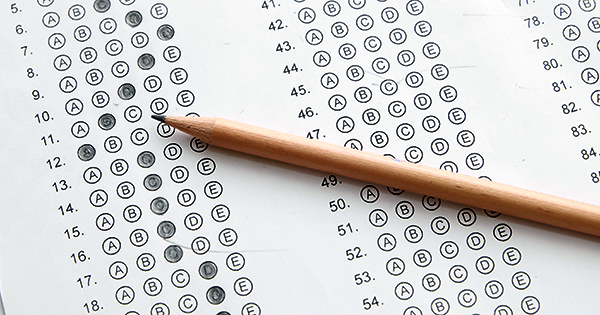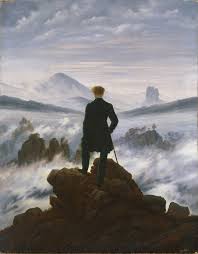Alexander Hamilton: A Tragic Hero
October 17, 2022
Alexander Hamilton was a founding father of the United States of America, who fought against all odds for independence and freedom from tyranny. After aiding in the win of the American Revolution against the British, he then strived for a national constitution. He defended the cause by writing 51 anonymous essays in the span of six months known as The Federalist Papers. As a result of his work, America’s government has been formulated upon this very constitution, with its rule surviving the past 235 years. However, Alexander Hamilton is a tragic hero as he accomplished a great deal in his lifetime, yet a fatal flaw led to harsh punishment and an eventual lesson learned.
America’s Founding Father, Alexander Hamilton, is a tragic hero as he embodies noble stature and greatness. Hamilton was born a poverty-stricken orphan. He lived on a small, desolate island with little opportunity for a successful life. Yet, his intelligence was undeniable, and so he was sponsored to attend King’s College in New York City. In New York, Hamilton began to fight for what he viewed as “right”. Whether it be literally fighting in the American Revolution for independence or delegating for a national constitution, Hamilton always strived for his causes to be heard. Therefore, Hamilton’s relentless pursuit of what he considered to be the greater good lends him to be a tragic hero.
Yet as a tragic hero, Alexander was not just a man of noble stature and greatness, but also one whose fraudulent actions brought him to his own downfall. As Hamilton got swept up in the power and status that came with his new title, America’s First Secretary of Treasury, his selfishness got the better of him as he cheated on his wife with a woman known as Maria Reynolds. When Reynolds’ husband became aware of this illicit affair, he spread it to Hamilton’s political rivals. Once word of Hamilton’s corruption made its way to Thomas Jefferson, leader of the opposing political party, the news spread like wildfire. Hamilton became known as nothing but a fraud, threatening the future of his political agenda and the Federalist Party at large. It was only when he faced this severe backlash that he decided to publish The Reynolds Pamphlets, admitting to his affair. Although Hamilton’s career was incredibly accomplished, his own selfishness and corruption became the tragic flaws that led to his downfall.
Inevitably, Alexander Hamilton received a harsh punishment due to his selfish actions. After confirming his illicit affair with Maria Reynolds through the publication of The Reynolds Pamphlets, he lost his coveted relationship with his wife and faced so much backlash that he had to step down from the Secretary of Treasury. Yet the worst punishment occurred when his son, Philip Hamilton, drunkenly confronted one of his father’s regressors, George Eacker. Eacker then requested a duel with Philip Hamilton, who agreed in an effort to defend his father’s honor. It was at this duel that Philip’s life was stolen, leaving Alexander Hamilton in a state of intense grief. Furthermore, Hamilton had now lost his wife, his career, and his son, all because of his selfishness.
However, all of Hamilton’s losses led him to realize that he needs to place higher importance on his selflessness. When originally confronted by Maria Reynolds, if he had put his own desires aside he would not have ended up with so much loss. Everything terrible that happened in his life can be greatly attributed to his relationship with Reynolds. His marriage with his wife became obsolete, he lost his career along with his credibility, and his son’s life was taken far too early all because of selfish desires. However, it took Hamilton to lose everything that mattered to him for him to realize that he needed to reform his character. After he realized that progress was necessary, he then began working to act more selflessly and honestly. His wife, Eliza, began to realize that Hamilton was evolving for the better and eventually agreed to reconcile with him. Although their relationship could be saved, Hamilton’s career remained tarnished and his son remained buried. Yet, Hamilton became a person who acted for others before himself after learning from his immense failures.
Therefore, Alexander Hamilton is a tragic hero as he embodies each of the defining characteristics. He is one of noble stature and greatness as he strived for American independence, the constitution, and the first national bank. He was firm in his beliefs and pursued them until they came to fruition. After such success, however, Hamilton’s selfishness got the better of him and he lost everything that held importance in his life. But with his career, son, and wife erased from his personal picture, he was able to evolve into an honorable man who placed primacy on selflessness and his own honesty. Furthermore, America’s Founding Father, Alexander Hamilton, is a tragic hero as he is a man of noble stature and greatness, with a fatal flaw entailing punishment and a period of personal reform.
Bibliography
“Philip Hamilton (1782-1801).” PBS, Public Broadcasting Service, https://www.pbs.org/wgbh/americanexperience/features/hamilton-philip-hamilton-1782-1801/.
“A Tragic Hero: Alexander Hamilton.” Prezi.com, https://prezi.com/hgtgw3ymimgu/a-tragic-hero-alexander-hamilton/.
“Who Tells Your Story?: How ‘Hamilton’ Turned Alexander Hamilton into America’s Tragic Hero [Contributor: Melanie].” Who Tells Your Story?: How ‘Hamilton’ Turned Alexander Hamilton into America’s Tragic Hero [Contributor: Melanie] ~, http://www.itsjustaboutwrite.com/2015/11/who-tells-your-story-how-hamilton.html.
Christopher, Ben. “How Statistics Solved a 175-Year-Old Mystery about Alexander Hamilton.” Priceonomics, 20 Mar. 2022, https://priceonomics.com/how-statistics-solved-a-175-year-old-mystery-about/#:~:text=%E2%80%9CAlexander%20joins%20forces%20with%20James,the%20span%20of%20six%20months.


























